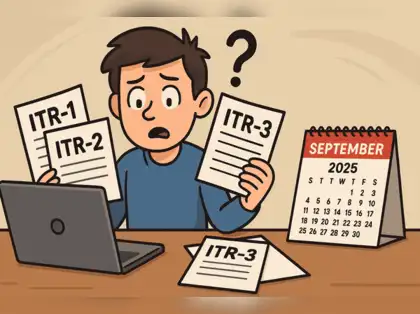The Multifaceted Benefits of Sustainability
In a world awakening to the urgent need for environmental stewardship, the term “sustainability” has become a beacon of hope. This article delves into the profound and multifaceted benefits of sustainability, shedding light on its pivotal role in fostering a healthier planet and a brighter, eco-conscious future for all.

Environmental Benefits
Sustainability emerges as a potent force in combating environmental challenges. Through practices such as reduced carbon footprint, efficient resource utilization, and biodiversity preservation, sustainability serves as a guardian of the planet’s delicate ecosystems. This section explores the tangible environmental benefits that stem from embracing sustainable living.
Economic Advantages of Sustainability
Contrary to the misconception that sustainability is an expensive endeavor, this section unveils the economic benefits associated with sustainable practices. From cost savings in energy and materials to the creation of green jobs and enhanced financial stability for businesses, sustainability proves to be an economic catalyst with far-reaching advantages.
Social and Community Impact
Sustainability extends its positive influence beyond the environmental realms, impacting the very fabric of society. By fostering community engagement, improving health outcomes, and enhancing overall quality of life, sustainable practices become a catalyst for social change. This section explores the ripple effects of sustainability on the well-being of communities and individuals.
Sustainable Practices in Business
Sustainability in business transcends philanthropy; it is a strategic imperative. This section unveils how integrating sustainable practices enhances corporate responsibility, fosters consumer trust, and contributes to positive branding. From supply chain transparency to waste reduction, businesses can reap both ethical and financial rewards by embracing sustainability.
Renewable Energy and Sustainability
As the world grapples with the consequences of fossil fuel consumption, renewable energy emerges as a linchpin of sustainability. This section explores the benefits of transitioning to clean and efficient energy sources. From solar and wind power to innovative technologies, the shift towards renewables not only mitigates environmental impact but also establishes a foundation for a sustainable energy future.
Resilience and Adaptability
Sustainability is not just a proactive approach but a shield against unforeseen challenges. This section delves into how sustainable practices contribute to the resilience and adaptability of communities and businesses. From climate change to social disruptions, sustainability becomes a cornerstone for navigating turbulent times, ensuring stability and continuity.
Education and Awareness
Education forms the bedrock of sustainable change. This section emphasizes the pivotal role of education and awareness in the sustainability narrative. By fostering an understanding of environmental challenges and solutions, individuals become empowered advocates for sustainable living. From formal education to grassroots awareness campaigns, knowledge becomes the catalyst for collective action.
Government and Policy Implications
Government policies play a paramount role in steering societies towards sustainability. This section explores how proactive policies, incentives, and regulations contribute to a conducive environment for sustainable practices. From tax incentives for green initiatives to stringent environmental regulations, the impact of government interventions on sustainability is profound and far-reaching.
Frequently Asked Questions (FAQs) About the Benefits of Sustainability
1. What are the primary benefits of adopting sustainable practices?
Embracing sustainability contributes to environmental conservation, resource efficiency, and the overall well-being of both local and global communities.
2. How does sustainability positively impact the environment?
Sustainability reduces environmental harm by minimizing pollution, preserving ecosystems, and promoting conservation, fostering a healthier and more resilient planet.
3. Can businesses benefit from incorporating sustainability into their operations?
Absolutely. Businesses that prioritize sustainability often experience enhanced reputation, cost savings through efficient resource use, and increased customer loyalty due to eco-friendly practices.
4. Are there economic advantages to sustainable development?
Yes, sustainable development can lead to economic benefits such as job creation, innovation, and long-term cost savings, making it a viable approach for both economic growth and environmental responsibility.
5. How does individual sustainable living contribute to a larger impact?
Individuals practicing sustainable living collectively create a significant impact by reducing their ecological footprint, influencing others, and contributing to a more sustainable society.
6. Can sustainability efforts address social issues and inequalities?
Certainly. Sustainable practices often incorporate social responsibility, addressing issues like poverty, access to education, and community well-being, contributing to a more equitable and just society.
7. Is sustainable agriculture a key component of environmental conservation?
Yes, sustainable agriculture promotes soil health, reduces water usage, and minimizes the use of harmful chemicals, fostering biodiversity and contributing to the long-term health of the planet.
8. How does sustainability relate to climate change mitigation?
Sustainability plays a vital role in mitigating climate change by reducing greenhouse gas emissions, promoting renewable energy sources, and fostering resilient ecosystems.
9. Can individuals and communities benefit from sustainable energy practices?
Absolutely. Sustainable energy practices, such as using renewable sources like solar and wind, contribute to reduced energy costs, increased energy independence, and a cleaner environment.
10. Are there resources available for businesses or individuals looking to adopt sustainable practices?
Yes, numerous resources, including government initiatives, sustainable certifications, and educational programs, support businesses and individuals in adopting and implementing sustainable practices.
Conclusion:
In conclusion, the benefits of sustainability are not confined to environmental conservation alone; they extend to economic prosperity, social well-being, and the resilience of communities. This section encapsulates the transformative journey of embracing sustainability, calling on individuals, businesses, and governments to actively participate in crafting a sustainable future. As we collectively navigate the challenges of the present, embracing sustainability becomes not just a choice but a responsibility toward generations yet to come.




